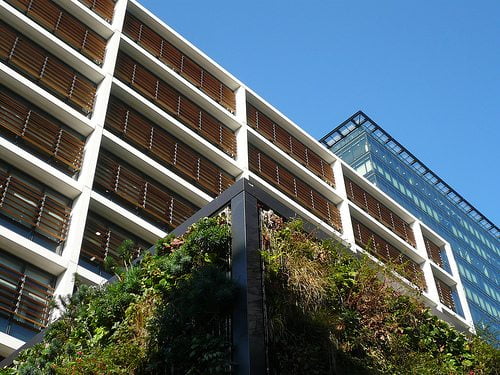

Features
Livin’ (Sustainably) in the City
If ‘living sustainably’ was a colour, it would be green. Green: the colour of the countryside, rolling hills, nature and where being part of your environment is surely much easier.
In the cities it’s all more grim and gritty; people are busy; there is too much technology and transport; and too many buildings and businesses to truly live sustainably. Right?
Like anything, living sustainably is a lifestyle choice. It is ultimately about lots of small actions building up to a way of life. Given that half of humanity, around 3.5 billion people, live in cities – an upward trend that is predicted to reach 75% by 2050 – and that they account for over 70% of energy consumption and carbon emissions, it is crucial that cities are sustainable.
It is not that hard, either. Cities often have the best transport infrastructure, water and waste systems, the newest building styles and economic benefits – as well as the ultimate asset: people, a lot of them, living in close proximity, bursting with creativity and intelligence.
The majority of cities in the UK have sustainable living strategies, setting out the vision for the future and the infrastructure and supporting services that will enable this. Meanwhile, the European Sustainable Cities and Towns Campaign (ESCTC) has attracted 1,300 local authorities, representing more than 100 million people.
But this article is about the individual and small groups, and how city living does not inhibit sustainability. Community engagement and involvement is essential to the implementation of any government initiatives and ideals.
In fact, nowhere is it easier to behave sustainably than when it comes to transport in the city. Work places, shops, schools, banks, leisure facilities, restaurants and bars are all within walking distance, or at the very most a few bus stops away. In the Brazilian city of Curitiba, no one lives more than 400m from a bus stop. Meanwhile, 18% of UK residents take public transport to work, the vast majority of usage comes in the major cities.
If sustainable eating involves growing your own veg, do it in the city, rather than wait for the good life to begin. Herb gardens, window boxes, vertical gardens, living walls and living roofs (or even potholes) are all easy to set up, cheap to maintain, and can be sustained easily.
Fresh ingredients that make your food taste better or beautiful flowers that make your world look nicer shouldn’t be a chore, whether you live in a city or have no neighbours within a 50-mile radius, and arguably any space is a space to grow in.
Even if growing your own is too difficult, there are plenty of opportunities to buy locally produced. You can’t walk very far at all without stumbling over a farmer’s market in most UK towns and cities.
Cities can be made more sustainable by considering the position and place of community within them. Often city dwellers are more isolated than village inhabitants, but within a collective much more can be done.
Things like sharing garden spaces, offering lifts to and from work, cooking for one another and taking it in turns to look after shared areas can only be done in cities, where there are people.
Sharing advice is necessary for successful sustainable regions. During Bristol’s Green Doors open weekend, now in its fourth year, householders who have made their homes more efficient, beneficial for the environment, cheaper to run and more comfortable to live in, open their doors to show other people how it can be done.
These are people who have chosen to and actively make the effort to live a sustainable lifestyle, some in small increments and others fully fledged, but all within an active and thriving city landscape
One of the main tenets of a sustainable city is that it is safe, accessible, comfortable and enjoyable. A city that you have helped to grow, and grow within – one that you have ownership and pride in – and that supports you to thrive, is surely one of these. And one that will last a long time.
Francesca Baker is curious about life and enjoys writing about it. A freelance journalist, event organiser, and minor marketing whizz, she has plenty of ideas, and likes to share them. She writes about music, literature, life, travel, art, London, and other general musings, and organises events that contain at least one of the above. You can find out more at www.andsoshethinks.co.uk.
Further reading:
Green versus grey infrastructure
We need expert problem-solvers to build the cities of the future
China’s mega ‘solar cities’ are great, but sustainability is about scaling stuff down
Saving the Earth with sustainable cities: infographic analysis
UN emphasises importance of sustainability in increasingly urbanised world
































